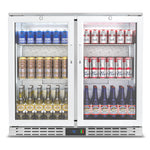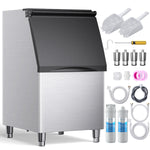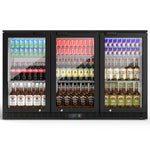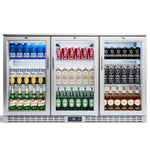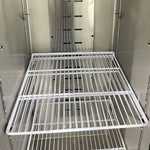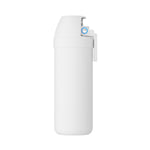You have no items in your shopping cart.
For tons of businesses, a commercial ice machine that works like a charm isn't just nice to have; it's a a must. Whether you're running a diner, a hotel, or a big event space, the quality of the ice you crank out can make or break customer satisfaction and keep your operations running smoothly. But here's the thing a lot of folks miss: water quality is the key factor when it comes to how well your ice machine performs. 
It’s not just “clean water”, purity, mineral content, and temperature directly shape ice clarity and taste, and how long the machine lasts. Contaminants like extra calcium, sediment, or chlorine make ice cloudy or bad-tasting, clog lines, coat parts, and force the machine to overwork. This leads to slower production, higher bills, and surprise breakdowns, big issues for cafes, bars, or grocery stores that need steady ice. Ignoring water quality risks, operations, and lost customers, since a bad ice cube can ruin a drink or food display.
To get why water matters, first understand how ice makers work. Whether it’s a small home counter-top model or a commercial modular unit, the core process is simple: water is pumped into a cold metal evaporator, frozen into cubes, flakes, or nuggets depending on design, then dropped into a storage bin. Every step needs smooth water flow and part interaction. Poor water quality disrupts this, but problems usually only show when performance tanks, like slow bin, filling, or misshapen ice.
How Water Quality Messes With Ice Makers?
Water quality harms ice makers in three key ways. Hard water full of calcium and magnesium is the biggest problem: minerals don’t freeze, leaving crusty “scale” on the evaporator. Scale insulates, making the machine use more energy and slowing production by 20% or more. It also clogs valves and nozzles, creating tiny or hollow cubes. For commercial spots, scale cuts the machine’s life by 3 to 5 years. Even soft water fails if unmaintained, adding sodium or sediment.
Impurities also damage machines and ice. Sediment, sand, and rust get trapped in filters and valves, blocking flow and scratching parts. Chlorine in city water breaks down rubber gaskets and hoses, causing leaks and chemical-tasting ice. Customers notice this right away. Mold or algae grow in stagnant lines common in slow cafes, making the ice musty and unsafe for food service.
Filtration’s the go-to first line of defense for keeping your ice maker from slacking off. Take sediment filters, for example, they catch sand, silt, and rust before that gunk can mess with the machine’s sensitive parts. That means fewer particles getting into the inner workings, lower risk of parts wearing out, and way less downtime or service hiccups. Moreover, it keeps chemical levels in check to keep ice quality consistent; a clean system also uses less energy, which cuts down on operating costs. Coolake's ice maker has a built-in filtration system that can meet your needs very well. More importantly, the water filter not only makes the ice taste better but also ensures the stable operation of the entire ice maker.
Most problems are preventable. First, install the right filter: sediment filters for sand and rust, scale inhibitors with softeners for hard water, and carbon filters to remove chlorine. Commercial users replace filters every 3 to 6 months, sooner if production slows; don’t wait for clogs. Second, Regular descaling helps too. Home machines use vinegar every 6 months, follow instructions; commercial units need a tech every 4 to 6 months for safe cleaning. Third, adjust for seasons: spring or summer brings sediment from rain, replace filters every 2 to 3 months, and check for algae. Winter makes scale more noticeable; descale beforehand.
 In conclusion, how well your ice maker works depends largely on the water you use. Poor quality makes bad ice, costs money, bills, repairs, lost customers, and shortens machine life. Whether you run a bar or need home ice, water testing, filters, and maintenance aren’t luxuries; they’re necessities. Proactive care keeps the machine efficient, ice tasty, and life no fuss. It’s a small step that avoids big headaches.
In conclusion, how well your ice maker works depends largely on the water you use. Poor quality makes bad ice, costs money, bills, repairs, lost customers, and shortens machine life. Whether you run a bar or need home ice, water testing, filters, and maintenance aren’t luxuries; they’re necessities. Proactive care keeps the machine efficient, ice tasty, and life no fuss. It’s a small step that avoids big headaches.
 English
English

